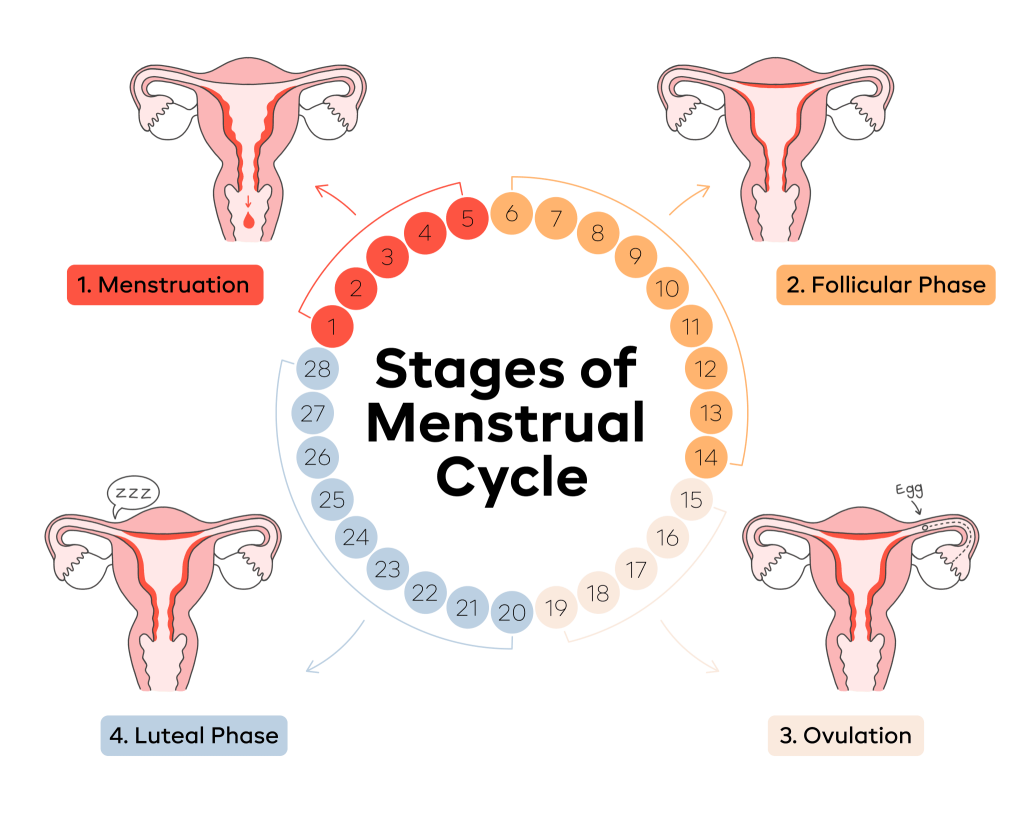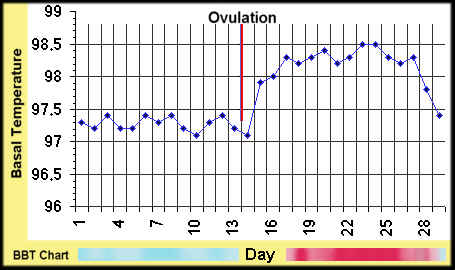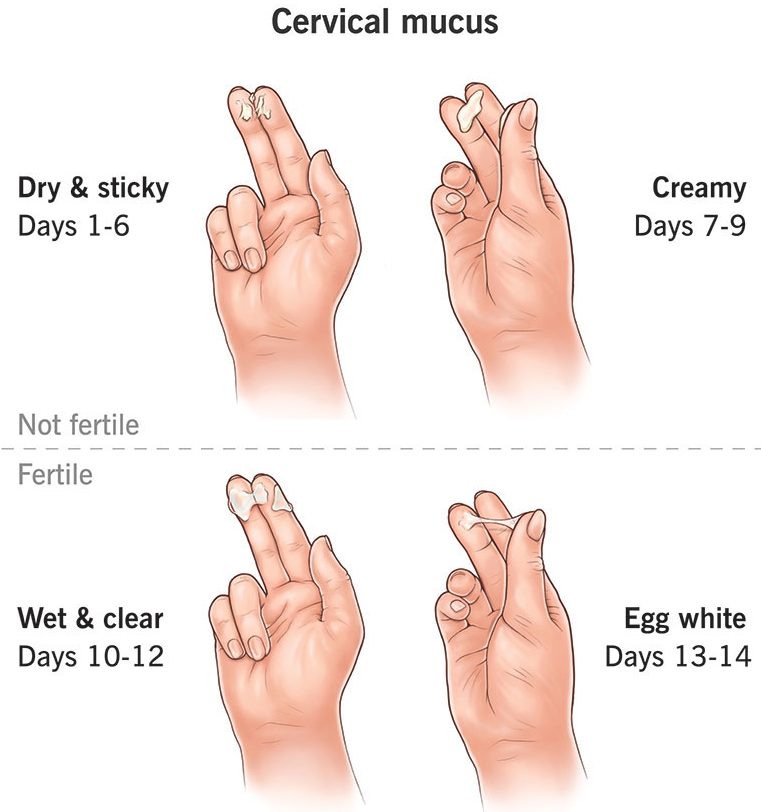How to Track Ovulation: A Guide for Couples Trying to Conceive
Conceiving a baby is a significant milestone for many couples, but understanding the best time to try can make a huge difference. One of the key factors in getting pregnant is knowing how to track ovulation – the process when an egg is released from the ovary and becomes available for fertilization. Accurately tracking ovulation helps couples identify their fertile window, increasing the chances of conception.
At Lakshmi Fertility Centre in Karaikudi, a trusted fertility clinic in Tamil Nadu, we specialize in helping couples with personalized fertility care, expert advice, and advanced reproductive treatments. In this article, we’ll explore the best ovulation tracking methods, backed by medical research and expert recommendations, to help you take the next step in your parenthood journey.

Understanding Your Menstrual Cycle and Ovulation
The Phases of the Menstrual Cycle
The average menstrual cycle spans approximately 28 days, though this duration varies significantly among women. Understanding the four key phases of this cycle provides essential context for tracking ovulation:
1. Menstrual Phase (Days 1-5): The cycle begins with menstruation, where the uterine lining sheds if pregnancy doesn’t occur.
2.Follicular Phase (Days 1-13): Overlapping with menstruation, this phase involves the development of follicles in the ovaries. Follicle-stimulating hormone (FSH) stimulates the growth of 5-20 follicles, each containing an immature egg.
3. Ovulatory Phase (Day 14, approximately): A surge in luteinizing hormone (LH) triggers the release of a mature egg from the dominant follicle. This egg can survive for 12-24 hours, creating a brief fertility window.
4.Luteal Phase (Days 15-28): After ovulation, the ruptured follicle transforms into the corpus luteum, which produces progesterone to prepare the uterine lining for potential implantation.
When Does Ovulation Typically Occur?
In a 28-day cycle, ovulation typically occurs around day 14. However, a study in the British Medical Journal analyzing over 124,000 menstrual cycles found that only 13% of women actually ovulate on day 14. The research demonstrated that ovulation timing varies widely even among women with regular cycles.
At Lakshmi Fertility Centre, we emphasize that each woman’s cycle is unique. Our reproductive endocrinologists conduct comprehensive assessments to understand individual variations and provide personalized ovulation tracking guidance.
Signs and Symptoms of Ovulation
Your body provides several natural indicators of approaching ovulation. Being attentive to these signs can supplement other tracking methods:
Cervical Mucus Changes
As ovulation approaches, cervical mucus increases in quantity and changes in consistency. During your fertile window, mucus typically becomes:
- Clear and stretchy (similar to egg whites)
- Slippery and lubricative
- Able to stretch between fingers without breaking (high elasticity)
This specialized mucus helps sperm survive longer in the female reproductive tract and facilitates their journey to the egg.
Basal Body Temperature Shifts
Your basal body temperature (BBT) – your body’s temperature at complete rest, increases slightly after ovulation due to progesterone release. This temperature rise, typically 0.2-0.5°C (0.4-1.0°F), indicates that ovulation has already occurred.
Mittelschmerz (Ovulation Pain)
Approximately 20% of women experience “mittelschmerz” – mild abdominal pain occurring when an egg is released from the ovary. This sensation may last from a few minutes to several hours and can alternate sides in different cycles.
Secondary Signs
Additional potential indicators include:
- Increased libido
- Heightened sense of smell
- Light spotting
- Breast tenderness
- Bloating
- Changes in cervical position and firmness
Methods to Track Ovulation
Calendar Method
The calendar method involves tracking your menstrual cycle over several months to identify patterns and predict ovulation. To use this method:
- Record the first day of your period (Day 1) for at least 6 consecutive months
- Identify your shortest and longest cycles
- Calculate your likely fertile window:
- Earliest ovulation day: Shortest cycle length minus 18 days
- Latest ovulation day: Longest cycle length minus 11 days
While accessible and cost-free, this method is less reliable for women with irregular cycles. A 2020 study in the Journal of Women’s Health found that the calendar method correctly identified the fertile window in only 76% of regular cycles and 54% of irregular cycles.
Basal Body Temperature (BBT) Charting
BBT charting requires taking your temperature immediately upon waking each morning before any activity. After recording temperatures for several cycles, you may observe a pattern:
- Pre-ovulation: Temperatures typically range between 36.1-36.4°C (97.0-97.5°F)
- Post-ovulation: Temperatures rise to between 36.4-37°C (97.6-98.6°F)
For accurate readings:
- Use a specialized BBT thermometer (accurate to 1/10th of a degree)
- Take temperature at the same time each morning
- Record results immediately
- Maintain at least 3 hours of uninterrupted sleep before measurement
While BBT confirms that ovulation has occurred, it’s a retrospective indicator.

Cervical Mucus Monitoring
The Billings Method or cervical mucus monitoring involves checking your cervical fluid daily and noting changes in:
- Quantity
- Color
- Consistency
- Feeling (wet or dry)
As ovulation approaches, mucus becomes more abundant, clear, slippery, and stretchy. Research published in Fertility and Sterility shows that intercourse during days with fertile-quality mucus increased pregnancy chances by 2-3 times compared to other cycle days.

Ovulation Predictor Kits (OPKs)
OPKs detect the surge in luteinizing hormone (LH) that precedes ovulation by 24-36 hours. These urine-based tests are:
- Widely available over-the-counter
- Relatively easy to use
- Approximately 99% accurate in detecting the LH surge
For best results:
- Test at approximately the same time each day
- Reduce liquid intake 2 hours before testing
- Use first or second morning urine for consistent results
Fertility Monitors
Advanced fertility monitors combine multiple tracking methods for increased accuracy:
- Hormonal monitors: Track estrogen and LH levels
- Electrolyte monitors: Detect changes in vaginal electrolyte levels
- Multi-parameter devices: Combine BBT, cervical mucus analysis, and hormonal tracking
A comparative study published in Human Reproduction found that multi-parameter monitors correctly identified the fertile window in 89% of cycles, compared to 76% for single-parameter methods.
Mobile Apps and Digital Tracking
Fertility apps use algorithms to predict ovulation based on cycle data. While convenient, their accuracy varies widely. A 2020 study in NPJ Digital Medicine evaluated 73 fertility apps and found:
- Only 21% accurately predicted the fertile window
- Apps using multiple tracking parameters performed better
- Apps that incorporated user symptoms improved over time
Our fertility specialists advise: “Digital tools can be valuable for data organization, but their predictions should be verified with physiological signs or clinical methods, especially for couples with fertility concerns.”
Advanced Clinical Methods
At Lakshmi Fertility Centre, we offer advanced ovulation detection methods for couples with specific fertility challenges:
- Transvaginal ultrasound monitoring: Tracks follicular development and confirms ovulation
- Serum hormone analysis: Measures precise levels of reproductive hormones
- Endometrial biopsy: Confirms ovulation has occurred and evaluates uterine lining quality
These methods have significantly improved conception rates for our patients with complex fertility issues or previous tracking difficulties.
Creating Your Personalized Ovulation Tracking Plan
The most effective approach combines multiple tracking methods tailored to your specific needs. Consider these factors when developing your plan:
Cycle Regularity
- Regular cycles (variation <7 days): Calendar method combined with OPKs or cervical mucus monitoring often suffices
- Irregular cycles (variation >7 days): Multiple tracking methods including BBT, cervical mucus, and OPKs are recommended
Lifestyle Factors
- Busy schedule: Digital tools and OPKs may be more practical
- Shift work/travel: BBT may be less reliable; hormonal monitoring could be preferred
- Budget considerations: Start with cost-free methods like cervical mucus monitoring and calendar tracking
Medical History
- Previous fertility treatments: Advanced clinical monitoring may be beneficial
- PCOS or endometriosis: Hormonal monitoring and clinical oversight are often necessary
- Recent hormonal contraceptive use: Tracking may be less reliable initially
At Lakshmi Fertility Centre, our fertility specialists create individualized tracking plans based on comprehensive evaluations of your reproductive health, lifestyle, and specific fertility goals.
Scientific Evidence Supporting Ovulation Tracking
Studies show that tracking ovulation can significantly increase pregnancy success rates:
- A study published in Human Reproduction found that women using ovulation tracking methods had a 30% higher chance of conception within six months
- Research from the American Society for Reproductive Medicine highlights that LH testing improves pregnancy rates
- According to the World Health Organization (WHO), nearly 25% of infertility cases are due to improper ovulation timing
Why Choose Lakshmi Fertility Centre, Karaikudi for Your Fertility Journey
Expert Expertise and Approach
Lakshmi Fertility Centre brings exceptional qualifications and a patient-centered philosophy to fertility care. With specialized training in reproductive endocrinology and years of clinical experience, our specialists have helped hundreds of couples overcome fertility challenges through personalized care plans.
“Every couple’s fertility journey is unique,” explains our Chief Fertility Specialist. “By combining advanced medical techniques with attentive, compassionate care, we create treatment plans that address both the physiological and emotional aspects of conception.”
Comprehensive Approach to Fertility Care
Unlike many fertility centers that focus primarily on treatments, Lakshmi Fertility Centre emphasizes education, prevention, and personalized care. Our unique advantages include:
- Individualized Assessment: Each couple receives a comprehensive evaluation addressing physiological, psychological, and lifestyle factors affecting fertility.
- Integrated Treatment Protocols: Our approach combines evidence-based conventional treatments with complementary therapies that have demonstrated effectiveness in reproductive health.
- Continuous Monitoring: Advanced tracking technology and regular consultations ensure treatment plans remain optimally aligned with your body's responses.
- Holistic Support Services: Nutritional counseling, stress management, and emotional support are integrated into your care plan.
Success Rates That Exceed Regional Averages
Under our expert leadership, Lakshmi Fertility Centre maintains conception rates 23% above the regional average for couples with unexplained infertility and 18% higher for those with identified fertility challenges. These outcomes result from our:
- Specialized expertise in reproductive endocrinology
- Customized treatment protocols
- State-of-the-art diagnostic capabilities
- Continuous quality improvement initiatives
Patient-Centered Care Philosophy
At Lakshmi Fertility Centre, we recognize that fertility treatments can be emotionally and financially demanding. Our commitment to compassionate, transparent care includes:
- Clear communication about treatment options and success probabilities
- Flexible scheduling to accommodate patient needs
- Affordable treatment packages with transparent pricing
- Comprehensive emotional support services
Our Chief Fertility Specialist emphasizes: “We measure our success not only by pregnancy rates but by the quality of care experience we provide. Each couple deserves individualized attention and compassionate support throughout their fertility journey.”
FAQs
1. What is the most accurate way to track ovulation?
Ultrasound follicular studies and hormone blood tests offer the highest accuracy.
2. Can I get pregnant if I have irregular periods?
Yes, but it requires careful monitoring. Consult a fertility specialist for guidance.
3. How many days before ovulation should I have intercourse?
The fertile window is typically five days before and one day after ovulation. Aim for intercourse during this period.
4. Do lifestyle factors affect ovulation?
Yes. Stress, obesity, smoking, and poor diet can impact ovulation. Maintain a healthy lifestyle for optimal fertility.
5. Are there any mobile apps for ovulation tracking?
Yes. Apps like Flo, Clue, and Ovia are highly recommended.
Conclusion
Tracking ovulation is a powerful tool for couples trying to conceive. From natural methods like BBT tracking to medical interventions such as ultrasound monitoring, various options are available. At Lakshmi Fertility Centre, Karaikudi, the top-rated fertility center, we provide expert guidance, advanced fertility assessments, and compassionate care to help you achieve your dream of parenthood.
If you are struggling with conception, Schedule a consultation today to explore your options and take a step closer to parenthood. For more information, visit our website or contact us directly.
